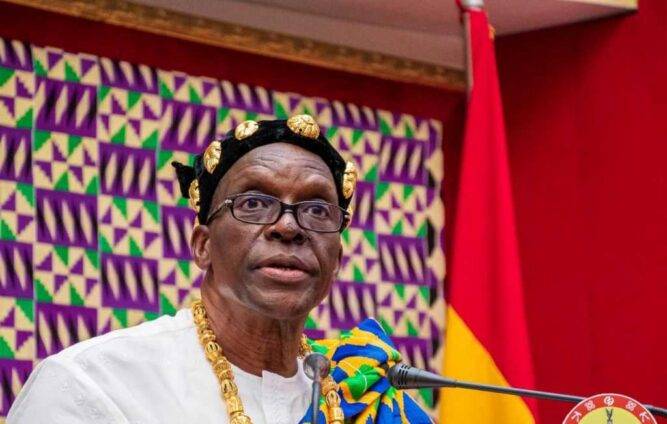In a recent parliamentary session, the Speaker of Parliament delivered a stern rebuke to the Majority caucus for attributing the delay in the presentation of the government’s mini-budget to the opposition National Democratic Congress (NDC). As tensions mounted in the House, the Speaker emphasized the importance of accountability and collaboration among lawmakers rather than resorting to finger-pointing. This incident highlights the ongoing political rivalry in Ghana, where legislative processes are often entangled with partisan disputes, ultimately affecting the timely delivery of critical fiscal policies. The Speaker's remarks reflect a growing frustration with the blame game that often overshadows constructive dialogue in Parliament.
The delay in the mini-budget presentation has raised concerns among various stakeholders, including economists, business leaders, and civil society organizations, who are keenly watching the government’s financial strategies amid challenging economic conditions. The Speaker pointed out that the parliamentary calendar is structured to allow for adequate preparation for budget presentations, and blaming the opposition is counterproductive. Instead, he urged the Majority to focus on resolving any internal challenges that may have contributed to the holdup. This call for unity reflects the need for a more constructive political environment, particularly when pressing economic issues are at stake. Stakeholders have expressed their dissatisfaction with the current state of affairs, emphasizing that effective governance should prioritize the economy and the welfare of citizens over political skirmishes.
As Ghana navigates its economic landscape, the implications of delayed budgetary measures can be significant. The mini-budget is crucial for addressing urgent financial needs and implementing policies that can stimulate growth and development in a time of economic uncertainty. The Speaker’s admonition serves as a reminder that effective governance requires cooperation across party lines. Moreover, the budget presentation is not merely a procedural formality; it sets the tone for the government's economic agenda and outlines the fiscal measures necessary to combat inflation, stimulate job creation, and support vulnerable populations. Moving forward, the focus should be on fostering dialogue and collaboration to ensure that legislative responsibilities are fulfilled efficiently. As the nation anticipates the revised budget, it is essential for all political actors to prioritize the welfare of Ghanaians over partisan interests. Ensuring that the government's financial plans are executed in a timely manner is not just a matter of political expediency; it is a fundamental requirement for the nation's prosperity and stability in the coming years.
In conclusion, the Speaker's rebuke serves as a clarion call for legislators to rise above partisan politics and work together for the common good. The challenges facing Ghana demand a united front, as the nation grapples with economic pressures that affect every citizen. By shifting the focus from blame to collaboration, lawmakers can restore public confidence in the parliamentary process and ensure that critical financial decisions are made in the best interests of the populace. The road ahead may be fraught with challenges, but a commitment to constructive engagement will be pivotal in navigating the complexities of governance in Ghana.


